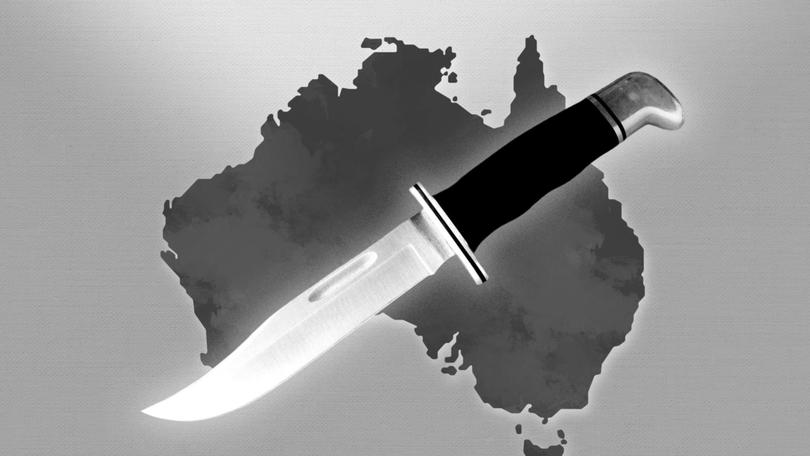Australian knife laws vary wildly between States as politicians call for change
Australia has some of the world’s toughest knife laws but a lack of national uniformity weakens their impact at State borders.

Australia has some of the world’s toughest knife laws but a lack of national uniformity weakens their impact at State borders.
NSW is flagging a second tightening of its laws inside a year after the Bondi Junction and Wakeley attacks, having in 2023 doubled maximum jail penalties for carrying or wielding a knife in public to four years.
However, jail penalties in other States for the same offences range from just one to three years, despite a clamp-down on knives over the past decade that has included tougher restrictions on the sale of blades, particularly to minors.
Sign up to The Nightly's newsletters.
Get the first look at the digital newspaper, curated daily stories and breaking headlines delivered to your inbox.
By continuing you agree to our Terms and Privacy Policy.Penalties for carrying knives can also vary across borders according to blade length or the type of knife.
On Monday, Christian orthodox bishop Mar Mari Emmanuel was seriously injured in a stabbing attack in his own church in Wakeley, in Sydney’s west, just two days after six shoppers were killed in a rampage at the city’s Bondi Junction shopping centre.
The attacks have prompted NSW and other States to review Australia’s inconsistent approach to the regulation of knives and the legislation and enforcement of penalties.
NSW Premier Chris Minns has already said he is open to a further tightening of the State’s knife laws, which were dramatically beefed up after several fatal stabbings, including that of Steven Tougher in April last year.
The 29-year-old paramedic died outside a McDonald’s restaurant while he and a workmate took a break.
The NSW Government responded by transferring the offences of having or wielding a knife in a public place or a school to the State’s Crimes Act and introducing tougher penalties to “send a strong message about the gravity of knife-related crime”.
The doubling in potential jail term was augmented by an increase in the maximum fine for possessing a knife to $4400, and for wielding a knife to $11,000.
“The government is acting to address understandable community concern given the high-profile tragic events involving knives that we have seen in NSW over the last couple of years,” the State’s Attorney-General Michael Daly said at the time.
Other States, however, have lighter penalties.
There is an argument to have wanding in protected entertainment precincts.
In Victoria, for example, carrying a knife without a lawful reason carries a maximum jail term of one year.
In WA, the maximum penalty is 2-3 years, depending on whether the knife is either a “prohibited” or “controlled” weapon. In South Australia and Tasmania, it is two years.
Get caught carrying a knife in the ACT and the maximum penalty is just six months.
Outside of NSW, in the wake of the attacks, confiscation powers are being given more attention than the introduction of stiffer penalties.
Queensland, for example, has trumpeted the success of police powers to stop and search people with wands, or hand-held metal detectors, with the aim of preventing knife crime in public areas.
Speaking after the Bondi Junction attack, Queensland Premier Steven Miles said the deaths had added “more weight” to the State’s push to extend “wanding” into shopping centres after the stabbing of Ipswich grandmother Vyleen White in February.
Under a law named after 17-year-old stabbing victim Jack Beasley, who was killed on the Gold Coast in 2019, Queensland police are allowed to use wands to search people in all safe night precincts, at public transport stations and on buses and trains without a warrant.
Since its inception, more than 500 weapons, including hammers and machetes, have been seized.
WA seems likely to follow Queensland in giving its police officers similar powers to combat what Attorney-General John Quigley says is “a dreadful trend”.
“There is an argument to have wanding in protected entertainment precincts and I will make a submission to (Premier Roger Cook) when I’ve completed it,” Mr Quigley said on Tuesday.
